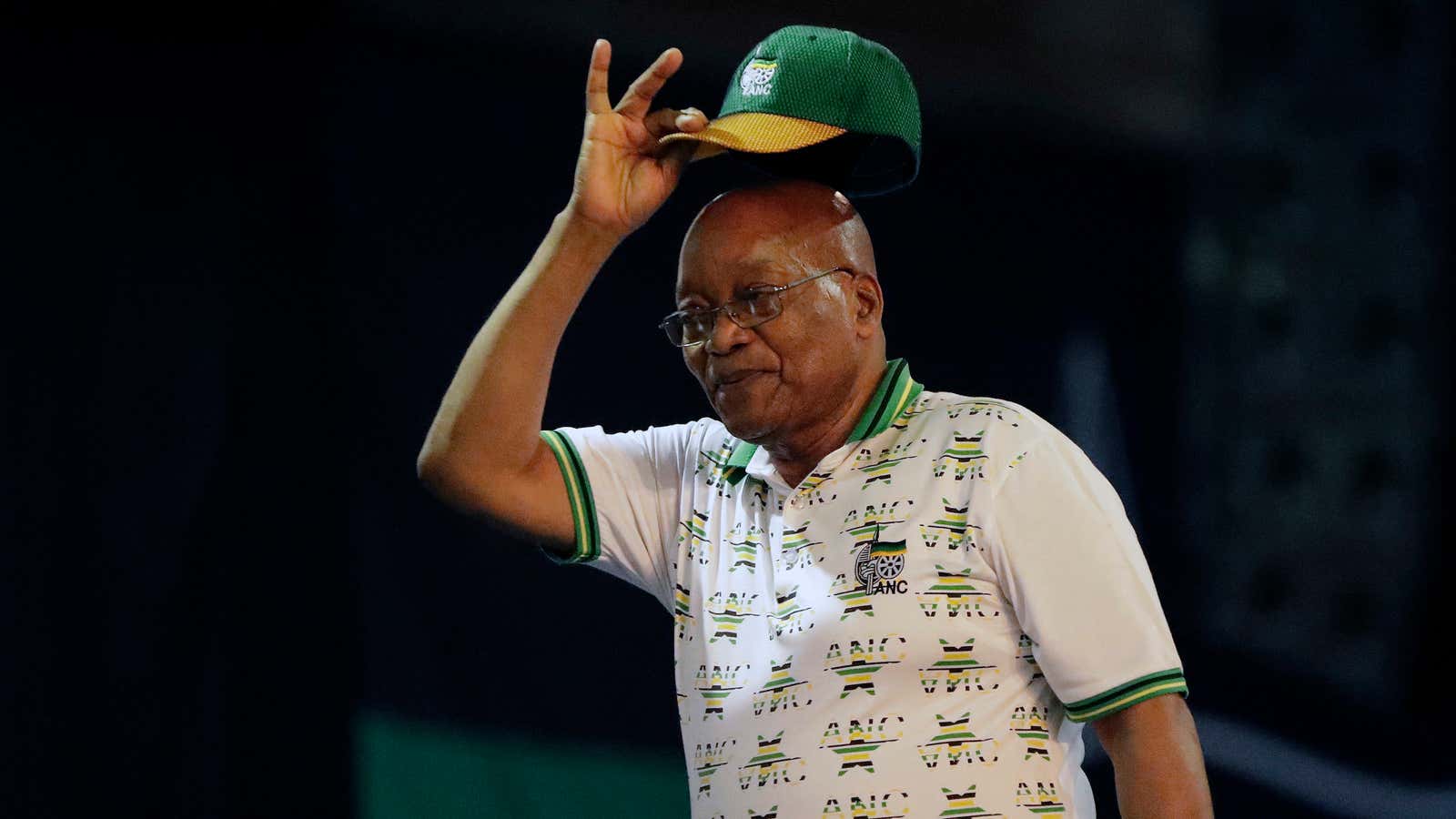Each year the state of the nation—the state of the union address as it’s known in the United States—is meant to set out a map for the path a country will follow for the next year at least. It’s tricky to outline that plan when you don’t even know who will be giving the speech, as South Africans are learning. In a surprise turn on Feb. 6, the important address has been postponed indefinitely—or at least until South Africans are certain about who is at the helm—signaling the nearing end of a chaotic administration.
President Jacob Zuma was scheduled to deliver the annual state of the nation address on Thursday, Feb. 8. In the last few days, however, Zuma’s future as the head of state has become more uncertain. Developments are moving quickly with little explanation from parliament or the African National Congress. The uncertainty is indicative of a leader who shuffled cabinet and made key decisions in late-night announcements, with little warning.
On Sunday evening, a convoy of senior ANC members arrived at Zuma’s home in Pretoria, with helicopters circling above. South Africans held their collective breathe, but nothing. Then on Monday, Zuma was summoned to meet with the Zulu king as the ANC met to discuss Zuma’s future in Johannesburg. Outside the meeting, pro- and anti-Zuma supporters clashed.
On Tuesday, Zuma summoned his cabinet ministers to home in Cape Town, where the state of the nation address will be held. At the same time the ANC’s national executive council announced plans for meeting late on Wednesday, with the only hint that the meeting will be of “national importance,” a senior member said in a press conference on Tuesday.
This is exactly the kind of uncertainty that has seen confidence in South Africa plummet in the last few years of Zuma’s presidency. For South Africans, who have already seen the unceremonious removal of former president Thabo Mbeki in 2008, it all feels familiar. What is new is Zuma’s reported stubbornness.
The marquee’s were already erected and the canapés ordered when the announcement came that that the annual address is postponed. This would likely cause some embarrassment to South African lawmakers, but many felt that it would be less undignified than the chaos that would have likely ensued if Zuma was allowed to speak on schedule.
If Zuma had taken to the podium, opposition parties were likely to disrupt the televised address. When announcing the postponement, speaker of parliament Baleka Mbete said the delay would “create room for establishing a more conducive environment.” That senior ANC officials like Mbete would not protect Zuma as they have done for the last decade or so shows that Zuma’s friends are becoming fewer.
If Zuma survives beyond Thursday, he’ll have to face his ninth vote of no confidence vote in parliament later this month. He’s survived them all, but his winning margins have dwindled as members of the ANC are so discouraged by Zuma’s leadership that they’ve voted with the opposition.
It is now almost an inevitability that Zuma will leave before his term ends in 2019. It may not, however, be the dignified exit he had hoped for. In that case, the deputy president Cyril Ramaphosa will likely succeed him and deliver the state of the nation address. Ramaphosa at the podium signals a new era to the international community and South Africans. Yet, given the extent of the chaos the Zuma years have brought to South Africa’s government, removing him may not bring the immediate assurance many hope for.
This post has been updated.
